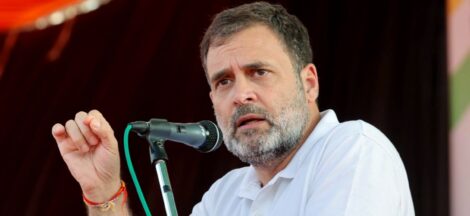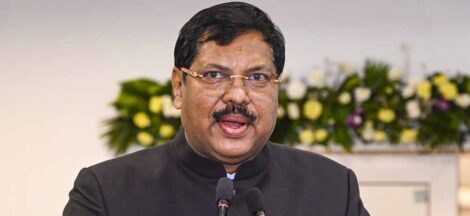A Special PMLA Court has mandated that the Enforcement Directorate (ED) must provide all evidence related to the land deal involving Nawab Malik, a senior leader of the Nationalist Congress Party (NCP), and the sister of notorious gangster Dawood Ibrahim. The ruling comes amidst ongoing investigations into Malik’s alleged connections to money laundering linked to the criminal underworld.
The court’s decision to compel the ED to reveal evidence marks a significant development in a high-profile case that has drawn attention due to Malik’s political stature and his contentious relationship with law enforcement agencies. Malik has been under scrutiny for his alleged involvement in transactions that facilitated land deals connected to Ibrahim’s family. The ED alleges that Malik acquired the land in question under suspicious circumstances, which they claim was part of a larger money laundering operation.
In his defense, Malik has vehemently denied any wrongdoing, asserting that he has been targeted for his political beliefs and opposition to the ruling government. His supporters claim that the case is politically motivated, aimed at tarnishing his reputation and undermining his influence within Maharashtra’s political landscape. They argue that the timing of the allegations, coupled with Malik’s outspoken criticism of the Bharatiya Janata Party (BJP), suggests a calculated effort to silence dissent.
The court’s order to disclose evidence is seen as a pivotal moment in the case, as it may provide Malik and his legal team with the necessary information to mount a more robust defense. The ED has previously faced criticism for its handling of various cases, with allegations of overreach and selective prosecution. This latest ruling may further complicate the agency’s position, as they must now navigate the legal ramifications of sharing sensitive information that could potentially impact ongoing investigations.
Malik’s case is emblematic of the broader challenges faced by political figures in India as they confront allegations of corruption and criminal connections. The interplay between law enforcement and political narratives has created a charged atmosphere, where accusations can quickly escalate into major political battles. As investigations continue, the case is likely to remain a focal point in the media and among political analysts, drawing parallels with other high-stakes cases involving prominent leaders.
The ramifications of this ruling extend beyond Malik himself, as it raises questions about the integrity of the enforcement mechanisms in place to combat corruption and organized crime. Analysts suggest that the outcome of this case may set a precedent for how similar cases are handled in the future, particularly those involving politically sensitive figures. The ED’s ability to substantiate its claims with concrete evidence will be under intense scrutiny as the proceedings unfold.
Malik’s political allies have rallied around him, asserting that the allegations are part of a broader campaign to intimidate opposition voices. The NCP has criticized the BJP-led government for allegedly using state institutions to target dissenters, emphasizing the need for impartial investigations that do not serve partisan interests. This sentiment echoes in many political circles, where the line between law enforcement and political maneuvering is increasingly blurred.
As the case progresses, observers will be keenly watching for further developments, particularly how the ED responds to the court’s directive. Legal experts predict that the ED may face challenges in justifying its methods and the evidence it possesses, especially if the court finds any irregularities in their investigative practices. The case is poised to enter a crucial phase, where the balance between justice and political influence will be tested.
Public sentiment around the case is mixed, with some viewing Malik as a victim of political vendetta while others are wary of the implications of his alleged connections to criminal elements. This dichotomy reflects a broader societal debate about accountability, governance, and the role of law enforcement in democratic societies. As the court proceedings move forward, the discourse surrounding Malik’s case will likely evolve, shaping public perception and potentially influencing political alignments.
In the backdrop of this legal battle, the landscape of Maharashtra politics is shifting, with parties recalibrating their strategies in response to evolving narratives. The NCP, under Malik’s leadership, aims to consolidate its base amid the turmoil, emphasizing transparency and integrity as core values. The BJP, on the other hand, seeks to capitalize on the allegations to fortify its position in the state, presenting itself as a champion of anti-corruption efforts.




 Centre Issues High-Risk Warning for Apple Device Vulnerabilities
Centre Issues High-Risk Warning for Apple Device Vulnerabilities 